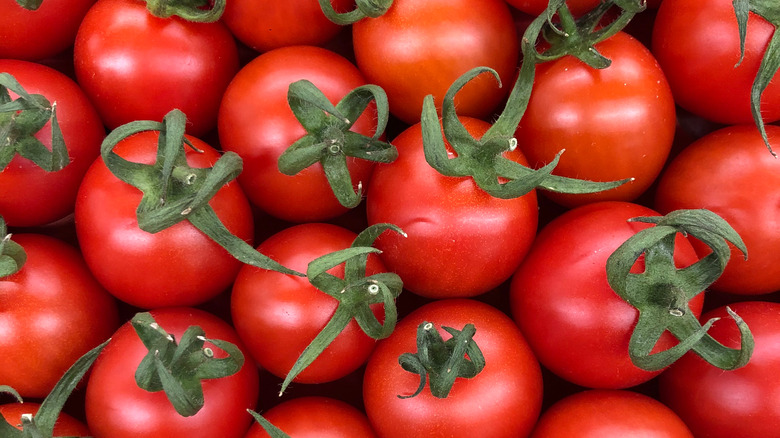
Everyone has experienced cravings for certain foods at some point, typically for items like candy, chips, and baked goods. However, you might occasionally find yourself desiring a fruit like tomatoes. This craving is quite common and is actually known as tomatophagia (as noted by Healthline). Although it’s most prevalent in pregnant women, it can happen to anyone.
Tomatophagia is frequently linked to nutrient deficiencies. Tomatoes are rich in vitamins, minerals, phytochemicals, and antioxidants, and a deficiency in any of these nutrients might lead to a craving for the fruit. If you are deficient in lycopene, potassium, vitamin A, vitamin C, or folic acid—all of which are present in tomatoes—you might find yourself experiencing tomatophagia. This craving may also be associated with iron deficiencies, despite tomatoes containing very little iron. Experts are unsure why this is the case, but iron-deficiency anemia can lead to cravings for various types of foods, including tomatoes. Symptoms of iron-deficiency anemia include fatigue, weakness, pale skin, and cold extremities. If you suspect your tomato cravings stem from this deficiency, consult your doctor.
Benefits of tomatoes

Tomatoes are an essential component of any diet, whether or not you’re craving them. They are loaded with a variety of vitamins and minerals, such as vitamin A, vitamin K, and potassium (as reported by Health). A single tomato provides nearly 40% of the daily recommended intake of vitamin C. Additionally, tomatoes contain lycopene, an antioxidant that may help lower cholesterol levels and blood pressure, and reduce the buildup of artery-clogging plaque, ultimately decreasing the risk of heart disease and stroke.
Consuming tomatoes can also enhance vision, boost digestive health, improve skin condition, and offer protection against certain types of cancer. Fortunately, tomatoes are versatile and easy to incorporate into your diet. They can be enjoyed raw as a snack or in salads, sautéed and added to pasta dishes, vegetable stir-fries, and more. Tomatoes can even be cooked down and pureed into soups and sauces. Regardless of your preferred way to consume them, try to include tomatoes in your diet more frequently to benefit from their health advantages.




